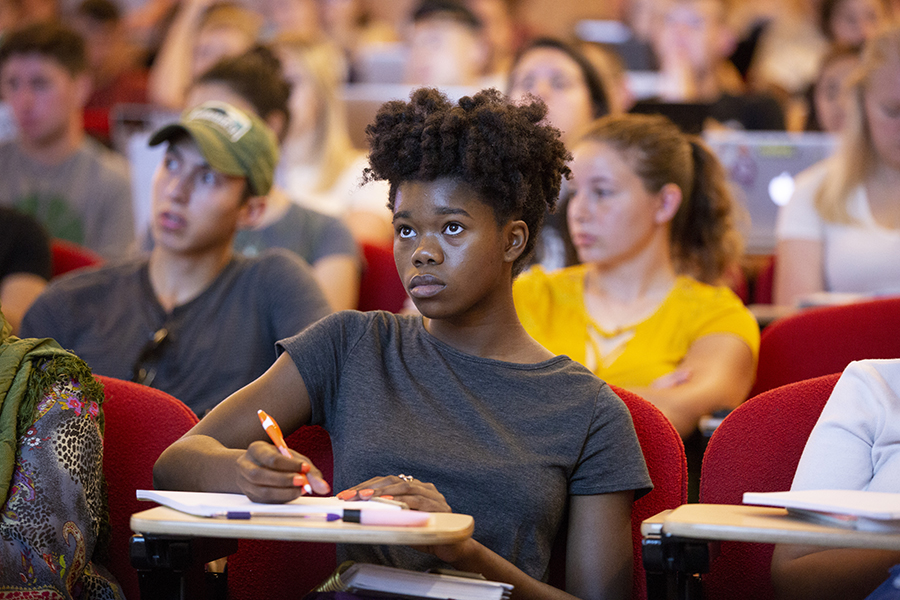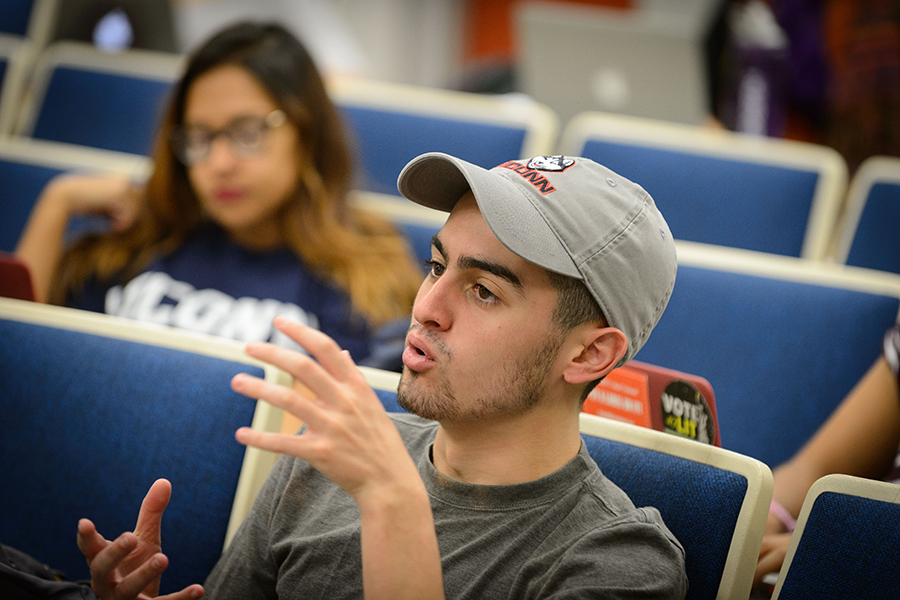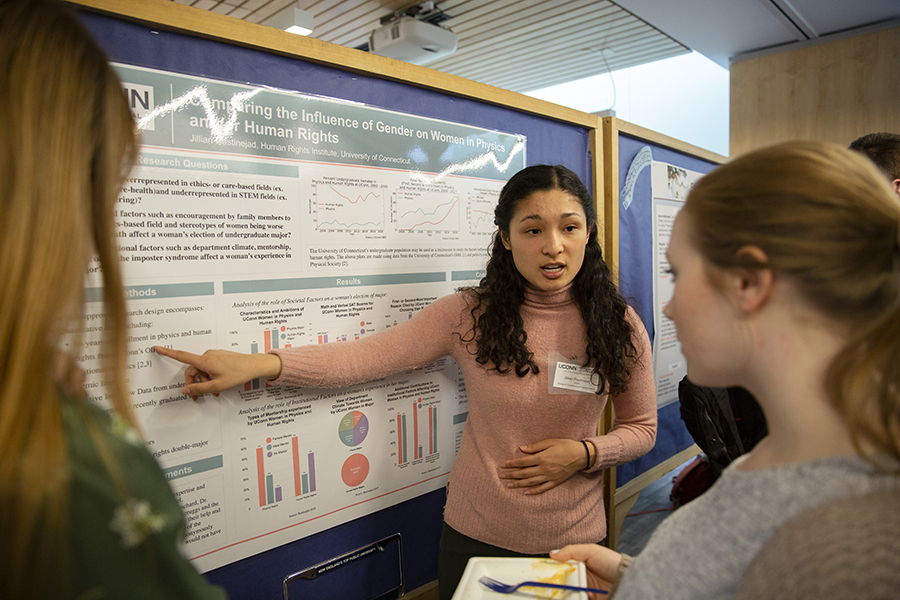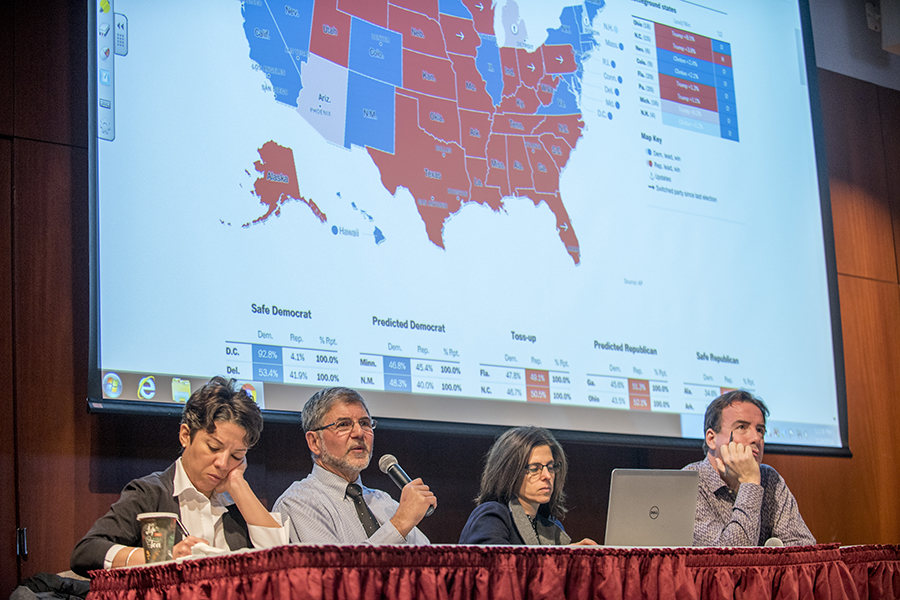About Our Department
Political science focuses on the theory and practice of government and politics at the local, state, national, and international levels.
The Department of Political Science serves a crucial role at UConn and beyond its five campuses. Our faculty conduct cutting-edge research and utilize innovative teaching practices in the classroom. Our undergraduate program trains students to be active and constructive citizens, and provides them with hands-on experiences that demonstrate the real-world applications of their degree. Through our graduate program, we educate future scholars and professionals in the tools of our trade.
Housed in the College of Liberal Arts and Sciences, the Department offers a Bachelor of Arts degree and a Ph.D. degree across five subfields: American politics, comparative politics, international relations, political theory, and public law. We also offer a Graduate Certificate and Master of Arts in Intersectional Indigeneity, Race, Ethnicity, and Politics and a Fifth-Year Master of Arts program for undergraduates.
Our Priorities

Undergraduate Education
The Department is committed to providing a liberal arts education, through which students develop strong, transferable intellectual and practical skills. These skills include communication, critical reasoning, quantitative analysis, and an appreciation for human diversity. With its focus on the study of government, institutions, civic discourse, and public life, the Department is uniquely equipped to develop all of these different skills among its students.
The primary goals of the Department's Bachelor of Arts program is to ensure that students are able to (1) think critically about politics; (2) communicate their ideas effectively; (3) identify different manifestations of power; and (4) understand the ways that power interacts with public decision making and public policy. Students do this through projects in small, upper-division classes; through internship opportunities at the local, state, and national levels; and through developing their own independent research projects under the guidance of a faculty mentor.
We offer a broad range of courses in six categories:
- Theory
- Methodology.
- Comparative politics.
- International relations.
- American politics.
- Public administration, policy and law.
- Intersectional indigeneity, race, ethnicity, and politics.
The Department’s Honors Program provides an intellectually stimulating and challenging experience for highly motivated honors students majoring in political science. In addition to completing a year-long honors thesis or completing two graduate seminars, honors students benefit from significant enrichment and professional development opportunities offered by our program.
Learn more about our undergraduate education and program requirements.

Graduate Education
One of the truest tests of our Department's success and scholarly stature is our ability to attract excellent graduate students and place them in positions where they can make full use of their training. We strive for excellence in our graduate education and research programs, which include five separate subfields:
- American politics.
- Comparative politics.
- International relations.
- Political theory.
- Public law.
In addition to our Ph.D. program, the Department offers a 30-credit expedited fifth-year Master of Arts in Political Science and both an entrepreneurial master's degree and a Graduate Certificate in Intersectional Indigeneity, Race, Ethnicity, and Politics (IIREP).
Learn more about our graduate education and program requirements.

Research
Our faculty, staff, and students are committed to producing scholarly work of the highest quality. They are also invested in the University's core values of innovation, leadership, global engagement, and diversity.
Our majors are required to take a one-credit course on POLS research methods in the first two years of their study.
POLS research labs include:
- Conflict and Security.
- Defending Democracy.
- Energy and Elections (EEL).
- Global IIREP.
- Political Economy and Representation (PEAR).
- Politics and Popular Culture.
- Puerto Rican Studies Initiative for Civic Engagement and Public Policy.
These labs advance collaborative faculty and graduate student research, create opportunities for grant writing and applications, facilitate undergraduate and graduate student training in research, and increase the visibility and community outreach of research clusters in our Department.

Community Engagement
Our faculty and students do not simply study politics from afar, but actively engage with the community to understand and address contemporary challenges. These learning experiences in turn help students gain valuable research skills and benefit the communities in which they live.
In addition to service learning, our Department engages the community in a number of ways:
- Our scholars translate their research findings to the public through public media appearances and events that engage UConn alumni.
- The Department helps students secure credit-bearing internships in Hartford and elsewhere throughout the state.
- In conjunction with the University’s Honors Program, the Department of Political Science also sponsors a Congressional Internship Program in which students earn a full semester of credits working for U.S. Senators and members of the House of Representatives in Washington D.C.
Learn more about how students engage with their communities beyond the classroom.